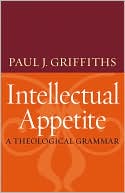Category Books
- Fiction Books & Literature
- Graphic Novels
- Horror
- Mystery & Crime
- Poetry
- Romance Books
- Science Fiction & Fantasy
- Thrillers
- Westerns
- Ages 0-2
- Ages 3-5
- Ages 6-8
- Ages 9-12
- Teens
- Children's Books
- African Americans
- Antiques & Collectibles
- Art, Architecture & Photography
- Bibles & Bible Studies
- Biography
- Business Books
- Christianity
- Computer Books & Technology Books
- Cookbooks, Food & Wine
- Crafts & Hobbies Books
- Education & Teaching
- Engineering
- Entertainment
- Foreign Languages
- Game Books
- Gay & Lesbian
- Health Books, Diet & Fitness Books
- History
- Home & Garden
- Humor Books
- Judaism & Judaica
- Law
- Medical Books
- New Age & Spirituality
- Nonfiction
- Parenting & Family
- Pets
- Philosophy
- Political Books & Current Events Books
- Psychology & Psychotherapy
- Reference
- Religion Books
- Science & Nature
- Self Improvement
- Sex & Relationships
- Social Sciences
- Sports & Adventure
- Study Guides & Test Prep
- Travel
- True Crime
- Weddings
- Women's Studies
Intellectual Appetite: A Theological Grammar » (New)

Authors: Paul J. Griffiths
ISBN-13: 9780813216867, ISBN-10: 0813216869
Format: Paperback
Publisher: Catholic University of America Press
Date Published: September 2009
Edition: New
Author Biography: Paul J. Griffiths
Paul J. Griffiths is Warren Chair of Catholic Theology at Duke Divinity School. He has held academic positions at the University of Notre Dame, University of Chicago, and the University of Illinois at Chicago. He has published eight books as sole author, and seven more as co-author or editor, among which the most recent are Reason and the Reasons of Faith with Reinhard Hütter and Lying: An Augustinian Theology of Duplicity.
Book Synopsis
Everyone wants to know things—this book explains how to want to know them well
The appetite for knowledge—wanting to know things—is very strong in humans. Some will sacrifice all other goods (sex, power, food, life itself) for it. But this is not a simple appetite, and this book treats some of its complications, deformations, beauties, and intensities.
Christian thinkers have traditionally distinguished between good and bad forms of the appetite for knowledge, calling the good "studiousness" and the bad "curiosity." The former is aimed at joyful contemplation of what can be known as gift given; the latter seeks ownership and control of what can be known as property for the taking. Paul J. Griffiths's Intellectual Appetite offers an extended study of the difference between the two, with special attention to the question of ownership: What is it like to think of yourself as the owner of what you know, and how might it be different to think of what you know as a gift given you?
How these questions are answered has a deep impact on a number of issues in contemporary educational and legal theory. Most fundamentally, there is the question of what it means to know something. On that, this book offers an account of knowledge in terms of intimacy: to know something (a mathematical formula, a past event, another human being, the lineaments of a galaxy) is to become intimate with it according to its kind.
There are also important and currently pressing ancillary questions; for example, that of what plagiarism is and how it should be addressed. Plagiarism is often understood in part as theft of intellectual property, and since it is essential to theargument of this book that seeking knowledge ought not to be understood as seeking ownership, the book offers a theological defense of plagiarism.
Table of Contents
Introduction
Curiositas
World
Damage
Gift
Participation
Appetite
Wonder
Owning
Kidnapping
Spectacle
Novelty
Loquacity
Gratitude
"
Subjects
 Educational Levels & Settings
Educational Levels & Settings  Higher Education - General & Miscellaneous
Higher Education - General & MiscellaneousEducation & Teaching
 Learning
Learning  Learning and scholarship
Learning and scholarshipNonfiction
 Philosophy
Philosophy  Major Branches of Philosophical Study
Major Branches of Philosophical StudyNonfiction
 All Nonfiction
All Nonfiction  Education - General & Miscellaneous
Education - General & MiscellaneousPhilosophy
 Major Branches of Philosophical Study
Major Branches of Philosophical Study  Religion, Philosophy of
Religion, Philosophy ofChristianity
 Christianity
Christianity  All Religion
All ReligionNonfiction
 Religion
Religion  All Religion
All ReligionReligion Books
 Christianity
Christianity  All Religion
All Religion
